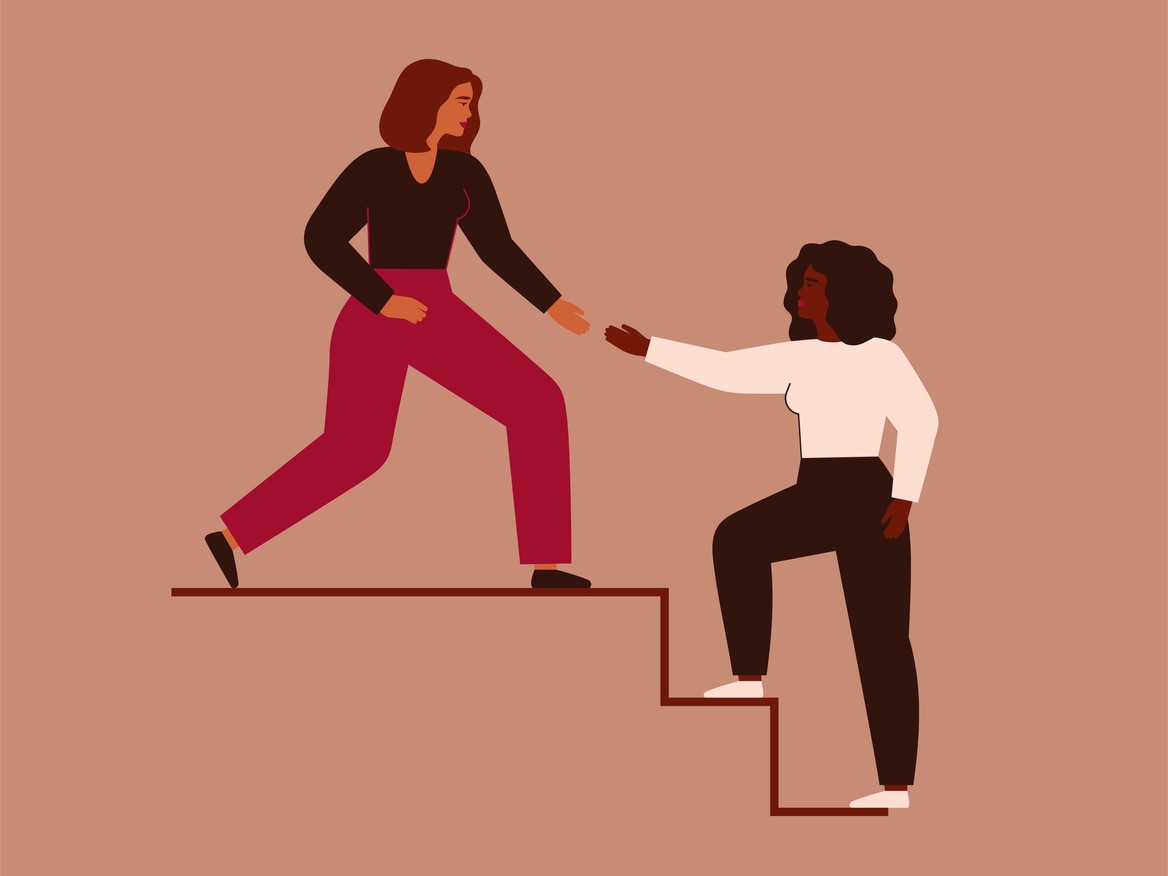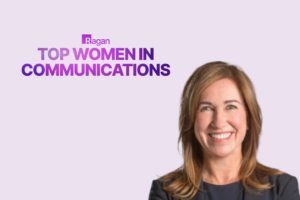Peppercomm’s Maggie O’Neill on Gen X leadership styles and women helping women
The Chief Client Officer, Senior Partner and member of Ragan Top Women in Communications Class of ‘23 reflects on a need for more shared spaces.

While women dominate the communications profession, The 2023 Global Women in PR Annual Index found that half of women in PR continue to work in companies in which the majority of boardroom seats are occupied by men. This is down from 64% in 2022, but still reveals an opportunity for more parity at the executive level.
For Maggie O’Neill, chief client officer and senior partner at Peppercomm, 22 years at the agency has helped her recognize the power of representation. When she joined the management team, it was half men and half women — with a focus on gender parity that was ahead of its time.
“PR and communications have always done a good job of recognizing women,” she said, “but less of a good job cultivating how we’re helping each other.”
Reflecting on being inducted into the Ragan Top Women of Communications Class of ’23 and her time spent with women’s leadership organization Chief, O’Neill wants more such opportunities for the industry to remind women that they should support one another.
Unlearning Gen X conditioning
Generationally, O’Neill believes, some Gen X women still subconsciously train people to “be more like the man.”
“That’s kind of what I was taught coming up as my career progressed,” she said. “This is a little dated, but feeling comfortable asking for more money, feeling like you have a voice in the room, when I was coming up that was always referred to as ‘you have to be more like a man.’”
“People aren’t giving me that advice anymore just because of where I am.”
O’Neill urges communications leaders of her generation to reflect on how they are moving away from this, as that mentality fosters an unhealthy competitiveness among women.
“The truth is, we do so much better as women when we have our backs, when we’re encouraging and mentoring.”
The power of communities like Ragan’s helps women in comms form smaller groups, she added, which creates an accountability. “If people are left to their own devices, that’s where you may fall back on your old beliefs — especially for a Gen Xer who came up in a very different time in society.”
Modeling leadership and peer-to-peer allyship in a small community
O’Neill believes that engaging with women who are at the same level as you and can empathize with the challenges you face can help you move away from that mindset. It has also helped her better nurture professionals from younger generations.
“Now I can help to mentor women who are coming up because it’s got to be better, and I know better now,” she said. “But when it comes to your peers breaking through that competitive set, those peer-to-peer groups are effective for all levels. You realize that other women are going through the same thing as you. That other women were taught the same thing.”
These communities are most effective when they offer room to discuss challenges and strategies in a non-competitive environment. “It’s that opportunity where you’re not vying for time,” said O’Neill. “You’re not vying for attention in the group — everyone’s on the same level, everyone’s comfortable enough talking and bringing things up.”
The less effective groups, she feels, are marked by someone presenting at you. “Even if it’s your peer or another woman, you still have that more senior-feeling relationship. And you can’t address exactly what you’re going through.
Moving past framing skills as a gender construct
As O’Neill acknowledged there’s been a learning curve for her and her women peers of a similar age, she stresses that many men in leadership have also come a long way toward working to mentor at a senior level — but leaders of any gender can still get tripped up.
“There’s a balance in understanding what we were taught, what we learned and what we can do better with it now,” she said.
To that end, while many of the skills she learned when she was taught to “act more like a man” are valuable skills, framing them around gender was the problem.
“It’s not the skills’ fault, right? Ask for what you want. Go in with a plan. Don’t just throw your hands up. Unfortunately, it was also ‘don’t cry hysterically.’ Well, I wasn’t going to cry.”
Ultimately, O’Neill feels that we all need to do a better job — which is why placing blame isn’t helpful.
“Sometimes the finger pointing goes to ‘the new generation is lacking here’ or ‘men aren’t doing this,’” she said.
“We all need to do a better job coming together more often rather than watching our backs. As communicators, we’ll just do better work.”
Join O’Neill as she takes the stage to induct and celebrate with Ragan’s Top Women in Communication class of 2024 on Feb. 29th at New York’s City Winery.







